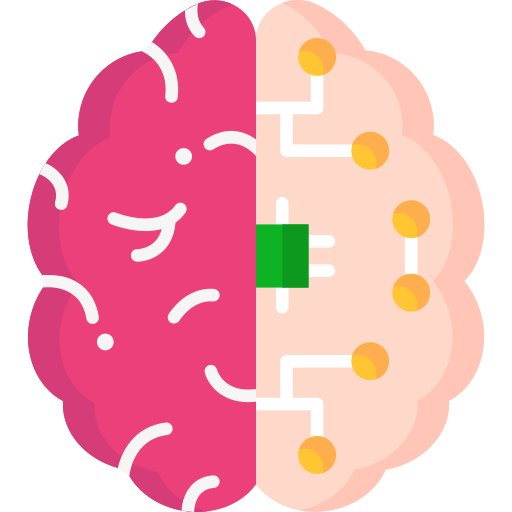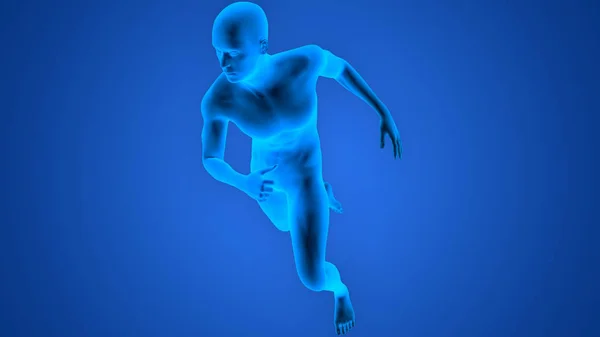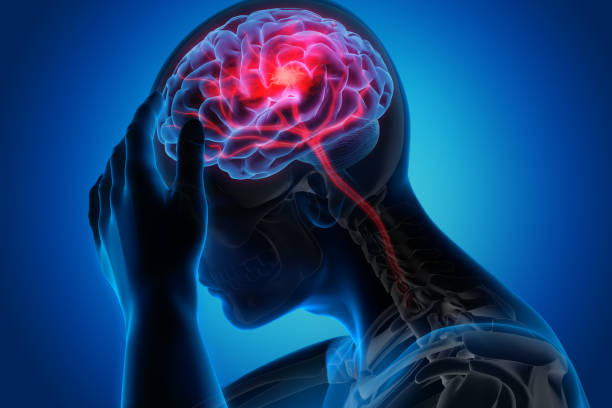
Neurology
At Sharda Care - Healthcity, our Neurology department specializes in the analysis and treatment of disorders affecting the Nervous system, including the Brain, Spinal Cord, and Nerves. Our team of Neurologists is dedicated to providing expert care for various Neurological conditions, ranging from Parkinson's disease and Alzheimer's disease to Epilepsy, Stroke, and Multiple Sclerosis.
The brain is a complex organ that plays a vital role in regulating the body's functions. Any Damage or Dysfunction in the nervous system can lead to significant Neurological problems, impacting a person's quality of life. Our Neurologists are highly skilled and experienced in diagnosing and managing these conditions, utilizing advanced diagnostic techniques such as Imaging Tests, Genetic Testing, and Neurological Assessments.
At Sharda Care - Healthcity, we offer world-class treatment for a wide range of Neurological conditions. Our hospital is equipped with state-of-the-art technology and facilities, ensuring that our patients receive the best possible care and outcomes.
Book an AppointmentWe offer a comprehensive range of treatments in Neurology to address various neurological conditions including:
-
Vagus Nerve Stimulation (VNS)
VNS is a scientifically proven method that delivers electrical impulses to the vagus nerve, regulating the body's responses and effectively treating refractory epilepsy. It has also shown promising results in managing conditions such as depression, anxiety, and Alzheimer's disease.
-
Canalith Repositioning System
This non-invasive procedure is used to treat Benign Paroxysmal Positional Vertigo (BPPV) by repositioning displaced calcium crystals within the inner ear. It involves a series of positional changes to restore the crystals to their original position, alleviating vertigo symptoms.
-
Epley Maneuver
A quick and simple procedure performed in the doctor's office, the Epley Maneuver is particularly beneficial for older patients who may not tolerate traditional treatment methods like medication or surgery. It effectively addresses vertigo symptoms.
-
Deep Brain Stimulation (DBS)
DBS is a revolutionary neurosurgical procedure involving the implantation of electrodes in precise areas of the brain to alleviate symptoms associated with various neurological disorders such as Parkinson's disease, essential tremor, and dystonia. It modulates abnormal brain activity and restores normal functioning.
-
Electroencephalogram (EEG)
EEG is a widely used medical procedure that measures the electrical activity of the brain. It aids in diagnosing neurological conditions such as epilepsy, sleep disorders, and brain tumours by recording the brain's electrical signals.
-
Electromyography (EMG)
EMG is a diagnostic technique used to assess muscle health and nerve function. It helps diagnose neuromuscular disorders like muscular dystrophy, myasthenia gravis, and carpal tunnel syndrome by evaluating muscle function and nerve conduction speed.
-
Epilepsy Surgery
For patients with epilepsy, surgical intervention may be necessary to remove or alter specific areas of the brain responsible for seizure activity. This complex surgery requires a multidisciplinary team of specialists, including neurologists, neurosurgeons, and neuropsychologists, to achieve successful outcomes.
-
Lumbar Puncture
Also known as a spinal tap, lumbar puncture is a medical procedure used to collect cerebrospinal fluid from the lower back. It helps diagnose conditions such as infections, bleeding in the brain, multiple sclerosis, and certain types of cancer by analyzing the fluid surrounding the brain and spinal cord.
-
Transcranial Magnetic Stimulation (TMS)
TMS is a non-invasive technique that uses magnetic fields to stimulate nerve cells in the brain. It is performed in the doctor's office and does not require anaesthesia or sedation. TMS is distinct from electroconvulsive therapy (ECT) and is used to treat various mental health conditions.
Looking for an Expert
Sharda Care The Healthcity is home to some of the eminent Doctors in the world.
Book an AppointmentSub-Specialities
Epilepsy

Epilepsy, a Neurological condition affecting the Brain, Renders individuals more prone to recurrent Seizures, marking one of the most prevalent disorders of the Nervous System across all age groups. Seizures can be triggered by various factors disrupting the normal connections between Nerve Cells in the Brain, including High Fever, Fluctuations in Blood Sugar Levels, Alcohol or Drug withdrawal, or even a Brain concussion. While such circumstances may induce Isolated Seizures in anyone, the diagnosis of Epilepsy is typically made when an individual experiences two or more Seizures. The underlying causes of Epilepsy are multifaceted, encompassing factors such as imbalances in Neurotransmitters, the presence of Tumours, Strokes, Brain damage from Illnesses or Injuries, or a combination thereof. Notably, in a significant portion of cases, the root cause of Epilepsy remains unidentified despite thorough investigation.
Symptoms
Symptoms of Seizures can manifest differently based on the type of Seizure experienced. Given that Epilepsy arises from specific Brain activity, Seizures have the potential to impact various Cognitive and Physical functions. Some common seizure symptoms include:
- Temporary confusion, where individuals may feel disoriented or have difficulty processing information.
- Staring spells, where a person may appear unresponsive or disconnected from their surroundings.
- Stiffening of Muscles, often resulting in rigidity or tension in the body.
- Uncontrollable jerking movements of the Arms and Legs, known as convulsions.
- Loss of Consciousness, where individuals may become Unconscious or Unaware of their surroundings.
- Some Psychological symptoms, like fear, worry, or a sense of déjà vu, can happen before or during a Seizure.
Types of Seizures
Seizures are categorized into two main types: Focal and Generalized, based on where and how the Brain activity initiating the Seizure begins.
Focal Seizures: Focal Seizures arise from activity in one specific area of the Brain. They are further classified into two types:
- Focal Seizures without Loss of Consciousness: Formerly known as simple Partial Seizures, these Seizures do not result in a loss of awareness. They may manifest as alterations in emotions or changes in sensory perceptions, such as visual or auditory disturbances. Individuals may experience sensations like déjà vu or involuntary movements of a body part, such as Jerking of an Arm or Leg. Sensory symptoms like Tingling or Dizziness may also occur.
- Focal seizures with impaired awareness: Previously referred to as complex Partial Seizures, these Seizures involve a change or loss of consciousness. Individuals experiencing these seizures may appear to be in a dream-like state, staring into space and exhibiting repetitive movements like hand Rubbing or Chewing.
Generalized Seizures: Generalized seizures involve activity across all areas of the brain and include various subtypes:
- Absence Seizures: Commonly seen in Children, Absence Seizures, formerly known as Petit Mal Seizures, involve brief episodes of staring into space accompanied by subtle body movements like Eye Blinking or Lip Smacking. These Seizures typically last for 5 to 10 seconds and may occur multiple times a day.
- Tonic Seizures: Tonic Seizures result in stiffening of muscles and may impact consciousness. They often affect Muscles in the Back, Arms, and Legs, leading to falls.
- Atonic Seizures: Also known as Drop Seizures, Atonic Seizures cause a sudden loss of muscle control, frequently resulting in falls due to the legs giving way.
- Clonic Seizures: Muscles in the Neck, Face, and Arms usually Jerk back and forth in a regular or repeating pattern during Clonic Seizures.
- Myoclonic Seizures: These Seizures present as sudden, brief Jerks or Twitches, commonly affecting the Upper Body, Arms, and Legs.
- Tonic-Clonic Seizures: Formerly referred to as Grand Mal Seizures, Tonic-Clonic Seizures are the most severe type, causing a sudden Loss of Consciousness, Body Stiffening, Twitching, and Shaking. They may also lead to Loss of Bladder Control or Biting of the Tongue.
Paediatric Neurology

The Paediatric Neurology Department at Sharda Care - Healthcity is dedicated to evaluating and managing complex or challenging disorders of the Nervous system in Neonates, Infants, Children, and Adolescents. Our team of Paediatric Neurologists specializes in providing precise diagnoses using advanced techniques such as Neuroradiology and Neurophysiology, ensuring comprehensive care for a wide range of Neuro disorders and related conditions.
We excel in managing various Neuro disorders, including but not limited to:
- Cerebral Palsy
- Autism
- Epilepsy and Childhood Seizure disorders
- Headaches/Migraines
- Paediatric Strokes
- Cerebrovascular diseases
- Inflammatory and Neuro-Oncological disorders
- Neurogenetic disorders
- Neuromuscular disorders such as Muscular Dystrophies and Movement disorders
- White matter disorders
- Disorders of Muscle Tone
- Developmental delays
- Other Neuromuscular diseases
Our department boasts extensive experience in Neuroimaging, Molecular Medicine, and Neurosurgical disorders, enabling us to provide comprehensive and effective treatment for our patients. We collaborate closely with other speciality departments to ensure that all aspects of the patient's condition are addressed, delivering superior quality services and personalized care at every step.
Movement Disorders

- Movement Disorders encompass a range of conditions impacting the Nervous System and Affecting movement control. Normally, the Nervous system communicates with Muscles to facilitate Smooth, coordinated movements. However, individuals with movement disorders experience disruptions in these Messages, Leading to various symptoms.
- Some movement disorders manifest as increased movements, resulting in Tremors or Spasms, while others cause a slowing down of movement, leading to Stiff or Rigid muscles.
Common types of movement disorders include:
- Ataxia: Affecting the part of the Brain controlling coordinated movement, Ataxia can cause uncoordinated Balance, Speech, or Limb movements, among other symptoms. It may stem from Genetic, Degenerative, Infectious, or Treatable conditions.
- Cervical Dystonia: Involuntary contractions of Neck Muscles cause the Head to pull to one side or tilt forward or backward, often accompanied by Shaking.
- Chorea: Characterized by Rapid, Irregular, Involuntary movements involving various body parts, Chorea resembles exaggerated fidgeting.
- Dystonia: Involving sustained involuntary Muscle Contractions and Repetitive Twisting movements, Dystonia may affect the entire body or specific body parts.
- Functional Movement Disorder: Resembling other movement disorders, this condition is not due to Neurological disease and is treatable.
- Huntington's Disease: A progressive Inherited Disorder, Huntington's disease presents with Uncontrolled movements, Cognitive impairment, and Psychiatric symptoms.
- Multiple System Atrophy: This rare disorder affects multiple Brain systems, causing movement disorders like Ataxia or Parkinsonism, along with other symptoms such as Low Blood Pressure and Bladder Dysfunction.
- Myoclonus: Quick, Lightning-like muscle Jerks characterize this condition.
- Parkinson's Disease: A slowly progressive disorder, Parkinson's disease leads to Tremors, Muscle Stiffness, Slow movement, and other symptoms like reduced sense of Smell and Constipation.
- Parkinsonism: Describing Slowness of Movement, Stiffness, Tremor, or Loss of Balance, Parkinsonism can have various causes, including Parkinson's disease, certain Medications, Degenerative Disorders, Stroke, or Head Trauma.
- Progressive Supranuclear Palsy: This rare disorder affects Walking, Balance, and Eye movements, resembling Parkinson's disease but distinct.
- Restless Legs Syndrome: Individuals experience uncomfortable sensations in the legs, often relieved by movement, particularly when relaxing or lying down.
- Tardive Dyskinesia: Caused by long-term use of certain Psychiatric Medications, Tardive Dyskinesia results in repetitive, involuntary movements like Grimacing or Blinking.
- Tourette Syndrome: Onset typically occurs in Childhood or Adolescence, Characterized by repetitive movements and vocal sounds.
- Tremor: Rhythmic Shaking of Body Parts, such as Hands or Head, Defines this disorder, with essential tremor being the most common type.
- Wilson's Disease: This rare inherited disorder causes excessive copper buildup in the body, leading to Neurological issues like Dystonia, Tremor, Parkinsonism, or Ataxia.
Stroke

At Sharda Care - Healthcity, we understand the Critical Nature of Strokes, also known as Brain Attacks, which occur when Blood Flow to the Brain is interrupted. This interruption leads to a Deprivation of Oxygen and Nutrients, causing Brain Cells to begin Dying within minutes.
The consequences of a Stroke can be severe, impacting various aspects of Brain function, including Movement, Speech, Eating, Cognition, Bowel and Bladder Control, Emotional Regulation, and other Vital Bodily Functions. It's essential to recognize the signs of a Stroke and Seek immediate medical attention to minimize Brain damage and prevent further complications.
Our team at Sharda Care - Healthcity is equipped to handle Stroke Emergencies promptly and effectively. We prioritize providing swift and comprehensive medical treatment to ensure the best possible outcomes for our patients. Don't hesitate to reach out for emergency medical assistance if you suspect a Stroke. Your quick action could make all the difference in reducing the impact of a Stroke on your health and well-being.
Causes of Stroke
- Ischemic Stroke: The most prevalent form of Stroke is Ischemic Stroke occurs when the Brain's Blood Vessels become Narrowed or Obstructed, leading to Reduced Blood Flow (Ischemia). This Narrowing or Blockage can result from the accumulation of fatty deposits within the Blood Vessels or the presence of Blood Clots or Debris that travel through the Bloodstream, often originating from the heart. Ischemic Strokes occur when these obstructions become lodged in the Brain's Blood Vessels.
- Haemorrhagic Stroke: occurs when a Blood Vessel within the Brain Rptures or Leaks, leading to Bleeding inside the Brain, known as a Brain Haemorrhage. Several factors can contribute to Haemorrhagic Stroke, including uncontrolled High Blood Pressure, excessive use of Blood Thinners (Anticoagulants), the presence of Aneurysms (bulges in weak Spots of Blood Vessel Walls), Head Trauma (e.g., from Accidents), and Protein deposits in Blood Vessel Walls (Cerebral Amyloid Angiopathy). Additionally, Haemorrhagic Strokes can occur as a consequence of an Ischemic Stroke leading to subsequent Bleeding.
- Transient Ischemic Attack (TIA): A Transient Ischemic Attack (TIA), often referred to as a Ministroke, is characterized by temporary symptoms similar to those of a Stroke but without causing permanent damage. TIAs occur due to a temporary decrease in Blood supply to a part of the Brain, typically lasting only a few minutes. These events are Triggered by Blood Clots or Fatty deposits that Impede or Block Blood Flow to the Nervous System.
Symptoms
If you suspect that you or someone around you is experiencing a Stroke, it's crucial to note the time when the symptoms first appear, as certain treatments are most effective when administered promptly after the onset of a Stroke.
Common symptoms of a Stroke include:
- Difficulty Speaking and understanding speech. Individuals having a Stroke may exhibit Confusion, Slurred Speech, or difficulty comprehending Spoken Language.
- Numbness, Weakness, or Paralysis on one side of the Face, Arm, or Leg. This typically affects one side of the body. A simple test involves asking the person to raise both Arms over their Head; if one arm begins to droop, it could indicate a Stroke. Additionally, there may be drooping on one side of the mouth when attempting to smile.
- Vision problems in one or both eyes. Sudden Blurred or Darkened vision in one or both Eyes, or double vision, may occur.
- Sudden, severe Headache. A sudden and intense Headache could be a symptom of a Stroke. It may be accompanied by Vomiting, Dizziness, or a change in consciousness.
- Difficulty walking. Those experiencing a Stroke may have trouble Walking, often Manifesting as Stumbling, Loss of Balance, or Coordination Issues.






